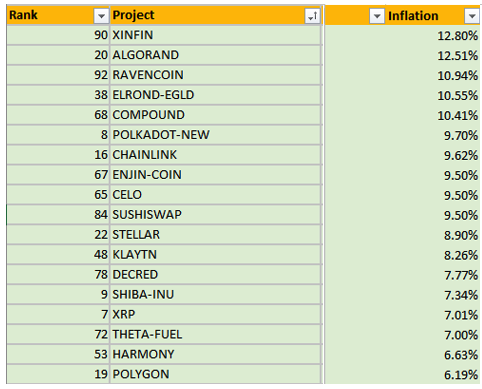Introduction
Inflation is a concept that often stirs discussions in the financial world, and it’s equally significant in the realm of cryptocurrency. Understanding what inflation means in the context of crypto, how it impacts the market, and the dynamics that drive it, is crucial for anyone participating in or analyzing the digital currency space. This comprehensive guide will delve into the nuances of inflation within cryptocurrency, shedding light on its implications for investors and the market at large.
What is Inflation in Cryptocurrency?
Inflation, in economic terms, refers to the rate at which the purchasing power of a currency is falling and consequently, the general level of prices for goods and services is rising. In the cryptocurrency world, inflation pertains to the increase in the number of digital tokens or coins available in the market over time. This increase can result from various factors, such as coin mining, staking rewards, or the creation of new tokens.
Crypto Inflation List
More than 15% inflation
6% – 15% Inflation

2.50% to 6% inflation
Under 2.50% inflation
Factors Contributing to Crypto Inflation
- Mining and Block Rewards: In proof-of-work (PoW) systems like Bitcoin, new coins are created as rewards for miners who validate transactions and add new blocks to the blockchain. This process can contribute to the overall increase in the coin supply, leading to inflation.
- Staking and Proof-of-Stake (PoS) Rewards: In PoS and similar mechanisms, participants earn rewards for holding and staking their coins. This can also increase the total supply of the coin, influencing inflation rates.
- Token Generation Events: Some cryptocurrencies are designed with a mechanism that periodically releases new tokens into the market, contributing to an increasing supply.
Inflation’s Impact on Cryptocurrency Value
- Purchasing Power: Similar to fiat currencies, an increase in the supply of a cryptocurrency without a corresponding rise in demand can reduce its purchasing power, causing prices to inflate.
- Investment Attractiveness: High inflation rates can make a cryptocurrency less attractive to investors as the potential for depreciation in value increases.
- Market Dynamics: Inflation can influence trading behaviors, market liquidity, and the long-term viability of a cryptocurrency.
Managing Inflation in Cryptocurrency
- Capped Supply: Some cryptocurrencies, like Bitcoin, have a capped supply, meaning there’s a maximum number of coins that can ever exist. This scarcity can counteract inflationary pressures.
- Deflationary Mechanisms: Certain tokens incorporate deflationary mechanisms, like token burning, where a portion of the supply is periodically destroyed to reduce the total circulating supply and combat inflation.
- Algorithmic Adjustments: Some cryptocurrencies use algorithms to adjust rewards or token generation rates based on various factors, helping to manage inflation.
Long-term Implications of Inflation on Crypto Markets
Inflation can have lasting effects on the crypto market. High inflation rates may discourage long-term investments and can lead to market volatility. Conversely, well-managed inflation can ensure the stability and gradual growth of a cryptocurrency’s value, fostering a healthier market environment.
Conclusion
Understanding inflation in cryptocurrency is critical for investors and market participants. It’s a factor that can significantly influence the value, stability, and future prospects of digital currencies. By recognizing the causes and effects of inflation in the crypto world, investors can make more informed decisions and navigate the market with greater confidence.
Read the full article here

